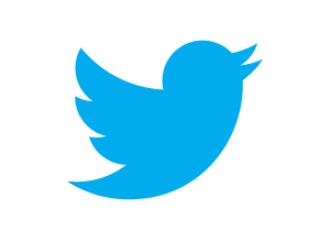Twitter, Inc. (NYSE: TWTR) is lower after a negative research call from Wall Street, although the micro-blogging website is not being downgraded per say. The call is worse than a downgrade. Cowen & Co. initiated analyst coverage of the stock with an outright “Sell” rating. The firm also established a price target of $32 for the company.
The problem with Twitter is not that its service is bad. The real problem that analysts are having is that the stock still loses money and is still worth over 50-times revenue. When you get a CFA designation, it just quite simply becomes too difficult to want to endorse a company’s stock when you are not buying any earnings and are being forced to pay for annualized revenues out to the year 2075 or so.
What is different about the Cowen & Co. call is that they said their survey of 50 advertisers suggested mixed results compared to advertising results at peer sites and services. They even mentioned a deceleration in Twitter use growth, although they expect average users to rise each year.
Other fairly recent analyst reports have put the slam on Twitter’s brakes as well. It looks like Twitter is now down over 10% since the end of 2013. Here are some other fresh calls in recent days:
- Cantor Fitzgerald cut it to Sell from Hold – $32 price target
- Morgan Stanley cut it to Underweight from Equal Weight – $33 price target
- Global Equities Research started it as equal-weight with $60 target on 12/30
- Macquarie cut it to Underperform from Neutral on 12/27
Twitter shares were down by 2.5% at $57.85 in mid-afternoon trading on Thursday, and about 16 million shares had traded hands. The stock is now down over 20% from its peak above $74 on December 26, 2013.
There are other issues which hurt Twitter. The super-premium in sales is one thing. Losses for 2013 and 2014 are hard to stomach. After all, Twitter is worth close to $32 billion and it is expected to have sales of only about $1.1 billion in 2014.
Another issue is one which very few want to discuss, but it is real. This is coming from a site owner with an advertisement-based business model, which is the same at most public media houses: Twitter is a de-monetization platform for content creators. It is true that people like Ashton Kutcher and other stars can instantly communicate whatever message they want out to millions of people at once. Twitter works well for that. But for content creators around news and media, the entire Tweeting process can send people enough information that they often can circumvent the entire article reading process. That means they get the info without the media companies making their freight.
So if the media is going to get monetarily damaged by Twitter, how long will it be before the media turns against Twitter? How do you think it will sound to people if they are being made fun of for buying a company at a valuation that made many stocks in the 1999 to 2000 internet bubble look cheap?
Thank you for reading! Have some feedback for us?
Contact the 24/7 Wall St. editorial team.





